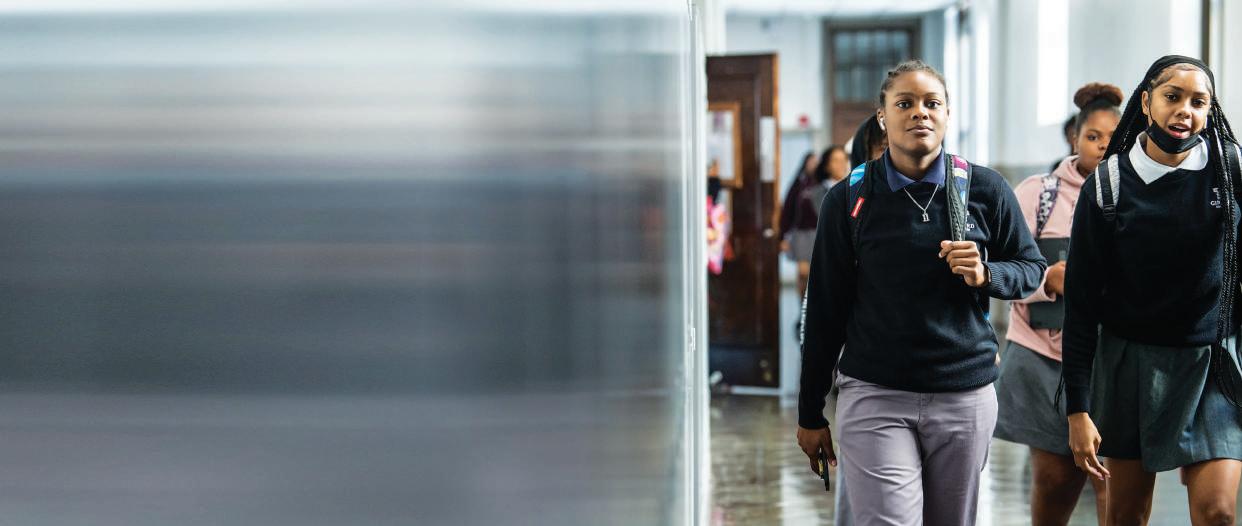
2 minute read
ACTS OF ADVOCACY BRING US TOGETHER FOR GOOD
By Brigitte
Our senior class was up in arms. Though we voiced our concerns to teachers, we felt we had little say in the conditions we found ourselves in. Workspaces were inadequate and study halls too infrequent, the dress codes felt invasive, and food options lacked variety. After a few months of spinning our wheels, I took the initiative to meet with Mr. Goins—the President of Girard College, our fulltuition paid boarding school in Philadelphia—to discuss student life.
Advertisement
When we sat down, he surprised me by sharing a favorite memory of his students’ civic engagement with an elected official. Back in 2005, when President Goins was an AP student government teacher, he would have his students read the news each day and find a pertinent article to journal on. It was then the students discovered that an elected official, Billy Yow, of Greensboro, North Carolina, was selling shirts with the image of a little white boy beside a Confederate flag in the background, urinating on the NAACP logo. The students were livid, shocked that an elected official would behave in such a way. For the rest of the class period, they created a game plan: They would go to the county commissioner’s meeting and confront Billy Yow.
Collectively, the students dominated the audience’s time limit of thirty minutes, preventing any deviation from their concerns. CNN stepped in to cover the story, and eventually, Yow was reprimanded. Later, he stepped down. Mr. Goins describes it as one of his favorite memories because it “show[s] that young people have all the answers. We just have to facilitate and create the space for [them] to feel safe enough to explore.” This meeting gave me hope to keep bringing up our senior class concerns.
Another teacher further encouraged us by sharing his own frontline experience in youth activism. Mr. Clough, Girard’s eleventh and twelfth grade history teacher, shared that in 2007, while a student at CUNY, he participated in a student occupation at NYU. This was at the start of the recession, and students were building coalitions with NYU and Columbia. Mr. Clough says, “What was really good is that we recognized although we came from very different backgrounds—Columbia and NYU kids were paying a lot more for tuition and generally came from better-off families than the CUNY kids; we were all working class or working poor—we were able to build solidarity around similar concerns, similar issues that were impacting all of us in some way.”
With this encouragement, my classmates and I continued to elevate our concerns. We met with resident advisors and alumni alike. As time passed, our needs were gradually incorporated into new policies, and things have improved. There has been a noticeable effort from residential and academic administrators to listen to student voices and implement change. For starters, study hall is now held at least twice a week, and we get more snacks. It seems small, but it’s a start.
While I don’t enjoy incremental policies and would prefer things to move more quickly, I do realize, especially through the stories our president and history teacher shared, there is power in forming strong coalitions—when we come together to speak up, change is possible.
About the Author
Brigitte Zigglih is 17 years old, resides in Symrna, DE and is a senior at Girard College in Philadelphia, PA. She likes cats, anime, and fantasy books. Her poem, My Work is Not Yet Done was published in Motivos Self Discovery edition in 2022 and appeared on a bus board in the Fishtown neighborhood of Philadelphia, PA.







